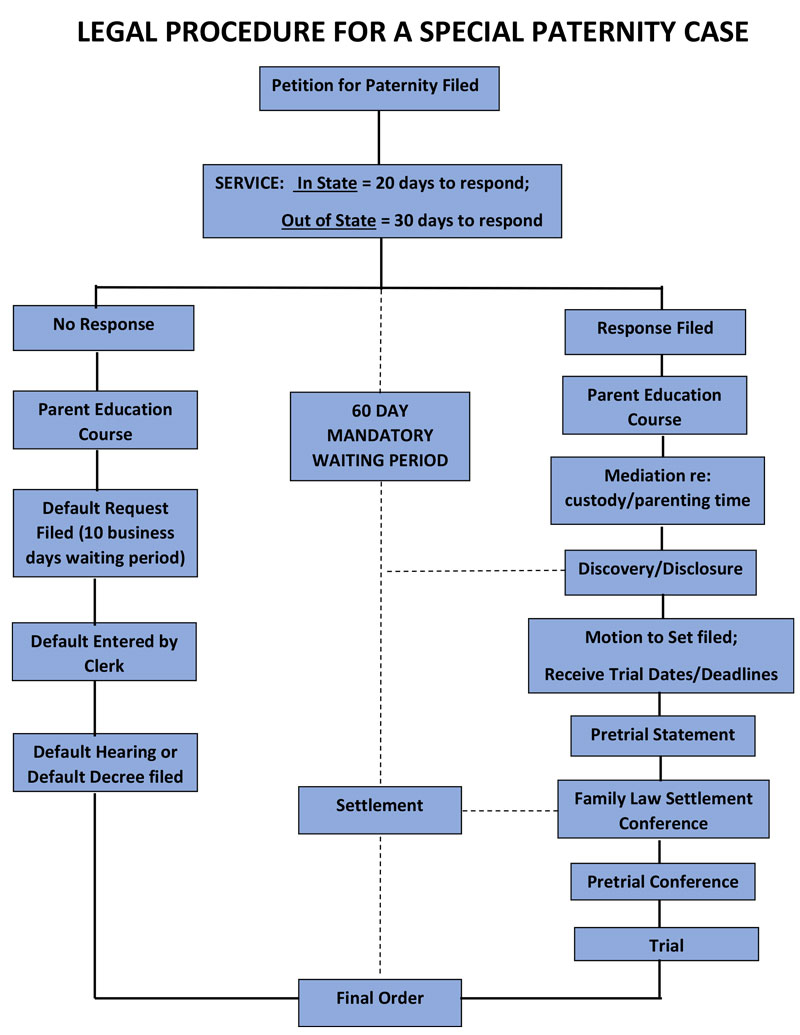Child Custody Issues Are Important
We’ve used the word “custody” here only because that’s what most people think of when they talk about time with their kids during and after a divorce. However, Arizona law doesn’t recognize the word anymore. Instead, we talk about the two major aspects of custody, decision-making and parenting time.
Who Will Make Decisions For Your Children After A Divorce?
Is this just splitting hairs, or is there some meaning behind the distinction between “custody” and “decision-making”? Actually, if you stop and think about it, it makes perfect sense. “Custody” can be defined as the care, possession and control of a thing or person. Now, care might be a good word to use, but who talks about their kids in terms of possession and control?
In a divorce, kids come first. The adults in their lives (parents, lawyers, judges) try to do what’s best for them. Using the term custody tends to place the kids as secondary to the alleged rights of the parties and makes parties fight for control over them. Children’s needs are and should be everyone’s primary consideration.
Since a person’s skill and experience with decision-making is generally not directly related to their parenting time, the law wants to take a separate and distinct look at the process of decision-making for minor children and determine if the parents are able to work together on all decisions, or whether the decision-making responsibility should be divided up. The four areas where the court believes parents should consult with one another are education, medical choices, religion, and personal care. In most cases, the court will order joint decision-making. The philosophy behind it is that children thrive best when both parents are involved in the important decisions of their lives.
Notice we use the word responsibility when it comes to decision-making. Making these decisions on behalf of your children is a serious and thoughtful responsibility. It is not a right or a trophy to be fought over and won in a courtroom. In fact, approaching decision-making arguments from this must win viewpoint may demonstrate to a court your complete lack of ability to make sound decisions!
Courts will also look at decision making of parents. Just because one parent may have done all the leg work in gathering the information and reviewing candidates, doesn’t necessarily mean they are better decision-makers, but reminding each other of the processes you used during the marriage may be useful in developing a functional process for application after the divorce.
It is necessary for a parent to decide what church and school the child attend, which doctor they should visit, etc. Such decisions will have a lasting impact on the child’s development. So important are these decisions that courts will carefully consider a parent’s ability to make the right determinations for the child, and may allocate decision-making responsibilities between the parents. Decision-making may be awarded to the parents jointly, solely to one parent, or it can be allocated based on the subject matter.
Philosophy Of Parenting Time
The parenting time side of the equation deals with dates, times, places and scheduling in general. Things like how the week will be divided up between the two residences, where the exchanges will occur, and who will be present at exchanges need to be decided. The parenting plan should also map out the arrangements for holidays and vacations. These plans may also include transportation issues and costs.
There are no special rules about parenting time, but we find that there are two factors that are extremely useful for communicating to a client and a court, why a particular parenting time schedule works or doesn’t work. The first is frequency, or how often the parent and child get to spend time together. Expert after expert tells us that the more frequent the parenting time, the better for the child. Generally, then, a parenting plan that has no more than two to three days between a child’s time with either parent is better than one that has seven days between, especially for children under the age of 10. This is not always the case and every family is different. For some post-divorce families, a week-on, week-off schedule works great. The second factor is consistency. Consistency actually has two prongs to it. One is consistency in exercising the parenting plan; the other is really about predictability for the child. Predictability for the child means that a child can answer on his or her own, the pervasive post-divorce question, “am I with you tonight?” The parenting time schedule should be so predictable and consistent that the child knows, for example, on Tuesday, they’re always with daddy, or I’m with mommy on Fridays. The schedule has consistent days and the child can expect and rely on it.
This brings us to the “in practice” aspect of consistency. If a parent isn’t consistently exercising their parenting time, they are failing all the way around, to the detriment of their child. First, a child needs both parents working together to raise them. It’s each parent’s responsibility to help guide and direct their child into adulthood. If a parent isn’t stepping up and using their parenting time for this purpose, then they’re failing their child. Second, a child comes to rely on that time with that parent. Believe me, they’re heartbroken when they have an expectation of that time with mommy or daddy and they get stood up. Once a child develops this kind of expectation, it’s heart-wrenching for them when it goes unmet. These are the children who develop big trust issues that carry on into their adult lives. Finally, a parent who comes and goes from their child’s life on an inconsistent, self-centered basis, can lose parenting time in court. In our family law practice, when we develop a parenting time schedule with a client we keep these two factors in mind and we make sure the client fully understands that they are so important.
Fighting Over Custody
Custody battles can be the most expensive aspect of any Arizona family case. Not only do these conflicts exhaust bank accounts, but they can also work irrevocable harm on the parties and the children. Entering into a high-conflict custody case should be a carefully considered option with realistic goals.
Financially, the attorney fees and other expert witness fees such as charges by children’s therapists and custody evaluators associated with contested custody can easily exceed $25,000. While some cases are less than this amount, you simply cannot underestimate the cost of fighting over issues like parenting time and decision-making. Yet there is no doubt that many of these fights are legitimate and necessary. There’s no escaping a conflict when you feel your child is endangered, or when the other parent makes false accusations. In these, and many other circumstances, parents have little choice but to engage in a legal battle. In those cases, it becomes even more important to use cost-saving measures. Managing your costs, choosing your battles, focusing on reducing conflict, and choosing the right law firm can help manage these costs.
Child Support
Very rarely is there a family law case where there is no support order. In Arizona family law cases, child support is calculated based on a strict formula. The formula is based on several factors including gross incomes of the parties, the number of overnights each parent gets with the children, costs of medical insurance and work-related childcare expenses.
Parenting Time And Child Support
Parenting time should maximize each parent’s time when they are not at work so that their children can spend the most time with each parent. Child support calculations contain a factor for the number of parenting days exercised over the period of a year. Judges are very aware that some parents will take a position in court that expands their parenting time in a way that does not benefit the children or is punitive toward the other parent. This assertion can result in the court awarding less parenting time, and it colors the case in a negative way that can spill over into other issues. It is important to put the child’s interests first and foremost in working out a parenting schedule, not the finances.
The attorneys at ELKINS & MUIR, P.L.L.C are dedicated to ensuring their clients are treated fairly in divorce, custody and child support cases. Call us at 520-219-4040.

